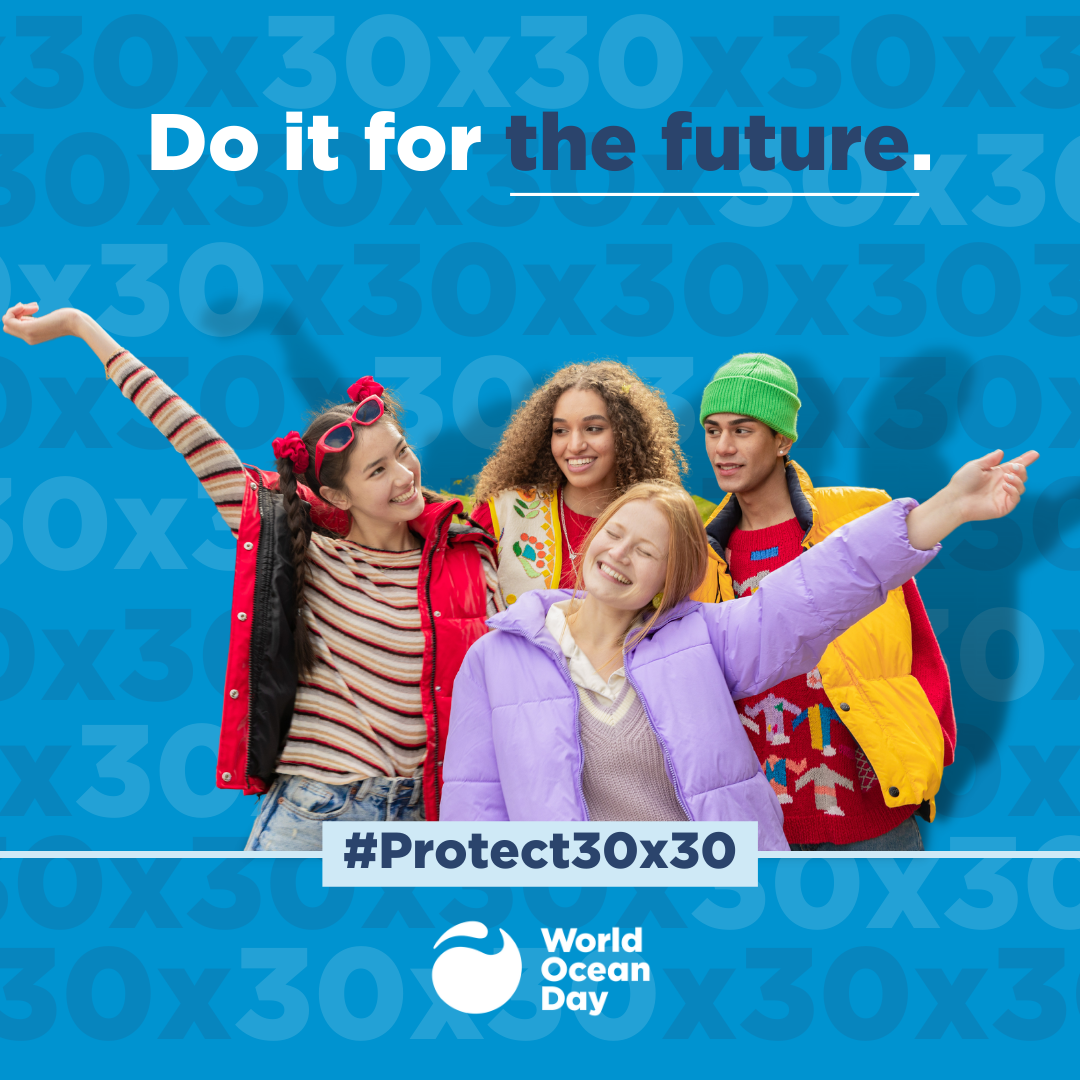World ocean day – let´s celebrate!
World Ocean Day general banner - Author: World Ocean Day
World Ocean Day: One Ocean, One Climate, One Future – Together
Today is World Ocean Day, an annual international celebration coordinated and promoted by The Ocean Project since 2002 that raises the profile of the importance of oceans and calls for ocean and climate action. It has been recognised by the United Nations since 2009.
This initiative brings together thousands of organisations such as schools, universities, youth organisations, aquariums, zoos, museums, dive clubs, marinas, and others, which organise different activities all over the world.
The central hub for resources and action is WorldOceanDay.org, where you can find a wide range of promotional resources and tools and a collection of the activities, celebrations, and other events happening worldwide. Take a look and spread the word!
Find World Ocean Day eventsFollow and share World Ocean Day on social networks:
The 2023 theme: Tides are changing!
The World Ocean Day´s theme for this year refers to the fact that change is underway in a good way. Many actions to increase sustainability in the ocean are gaining momentum and so is the public support for increased conservation in the high seas, from the movements to stop deep-sea mining to stepping up the fight against plastic pollution.
However, not all change is positive and the tides of climate change are also affecting our oceans, the largest carbon sink. Marine and coastal Protected Areas are especially concerned about the impact of climate change on biodiversity. Have a look at one of the episodes of Natur’Adapt’s Climate Talks where we hear from a Marine Protected Area in Italy and their efforts to involve the local community in their climate adaptation plans.
Celebrating Youth Action for Our Blue Planet
Young people increasingly play an important role in shaping a sustainable future for our society, and its engagement in policy and on the ground is vital. The world ocean day counts with a Youth Advisory Council, formed by members representing 21 countries that provide the necessary guidance and support to inform and inspire youth and others to take action throughout the year.
This year, the EUROPARC International Junior Ranger Camp will also be celebrating the oceans at the meeting point of the Baltic and North Seas in northern Denmark. There they will be learning about dune conservation, ocean biodiversity and the history of salt production amongst other things! For those of you joining the EUROPARC Conference, keep an eye out for the camp’s ocean-themed art project.

World Ocean Day banner – do it for the future
Recent milestones in ocean conservation
During the last six months, big steps have been taken to protect the oceans at global level. In this lines and with the occasion of the World Ocean Day, we would like to highlight some of the milestones that thanks to a collective effort, are bringing us forward to achieve a sustainable development in balance with nature:
High Seas Treaty
High seas, or waters beyond national jurisdiction, represent two thirds of the ocean. They are one of the most valuable sources of benefits for our society both at ecologic and socio-economic level. However, they are also subject to high pressure in regards of biodiversity loss, overexploitation, pollution and the impacts of climate change.
Despite of being regulated by some international agreements, the waters beyond national jurisdiction have lacked of a comprehensive legal framework that allows the different nations to effectively coordinate efforts in order to protect them.
Negotiations to develop the High Seas Treaty, an agreement for the conservation and sustainable use of marine biological diversity in areas beyond national jurisdiction, started two decades ago. Last 4th of March 2023, after a long process of negotiations, the text of the High Seas Treaty was finally agreed in the 5th Intergovernmental Conference in New York.
The Highs Seas Treaty is therefore a legally binding instrument under the United Nations Convention on the Law of the Sea (UNCLOS). It focuses in four thematic areas, being one of them the Area-based management tools (ABMTs), including marine protected areas (MPAs). Among others, the treaty provides a road map for establishing large-scale marine protected areas on the high seas, a key measure to meet the commitment of the Kunming-Montreal Global Biodiversity Agreement. The agreement has to be yet ratified by the 60 member states before coming into force.
More information on the High Seas Treaty.
A historic moment for our Oceans. Today marks the culmination of more than a decade of preparatory work and international negotiations in which the EU played a key role. With the agreement on the UN High Seas Treaty, we take a crucial step forward to preserve the marine life and biodiversity that are essential for us and the generations to come. It is also a proof of strengthened multilateral cooperation with our partners and a major asset to implement our COP 15 goal for 30% ocean protection. I am very proud of our outcome. Virginijus Sinkevičius, Commissioner for Environment, Oceans and Fisheries – 04/03/2023
Intergovernmental Negotiating Committee (INC) on Plastic Pollution
Plastics conform at least the 85% of marine waste and their levels are rapidly increasing. Currently, plastic pollution is one of the biggest environmental problems and it negatively impacts the environmental, social, economic and health pillars of our society worldwide.
In February 2022, the United Nations agreed to start the International Negotiating Committee to Develop an International Legally Binding Instrument on Plastic Pollution. This committee had its first meeting in October last year and is aiming to meet the deadline of a first draft ready in 2024. This treaty should be science-based, include the full life-cycle of plastic products and ensure the phase out of especially harmful chemicals like PFAs amongst others. Find more information at the United Nations Environmental Programme website.
To know more on previous an existing actions on initiatives that aim to tackle plastic pollution in Europe we recommend you watching the EUROPARC webinar Towards a NO-Plastic Sea: EU policies and Marine Protected Areas actions.
Global Biodiversity Framework – 30% protection targets commitment
In December last year we finally have a Global Biodiversity Framework which includes many safeguards for ocean biodiversity. The targets for 2030 include a commitment to stop biodiversity loss in areas under spatial planning (Target 1), to restore 30% of degraded coastal and marine ecosystems (Target 2) and to protect and conserve 30% of marine and coastal areas under effective management (Target 3). You can find more information on this agreement here.
Stay tuned on EUROPARC news for more updates on marine conservation and keep an eye on our Marine Policies section for information about legal framework on European waters.
